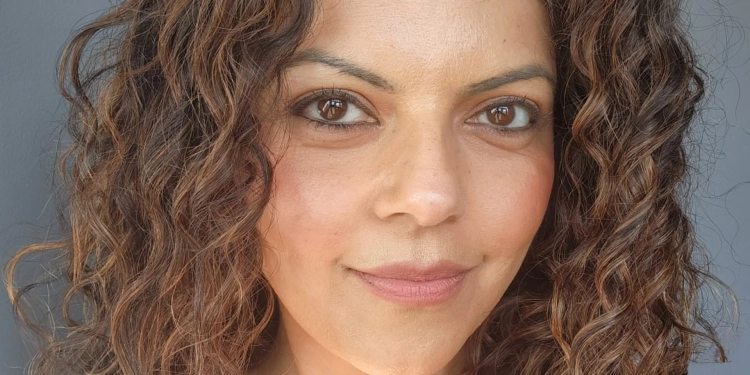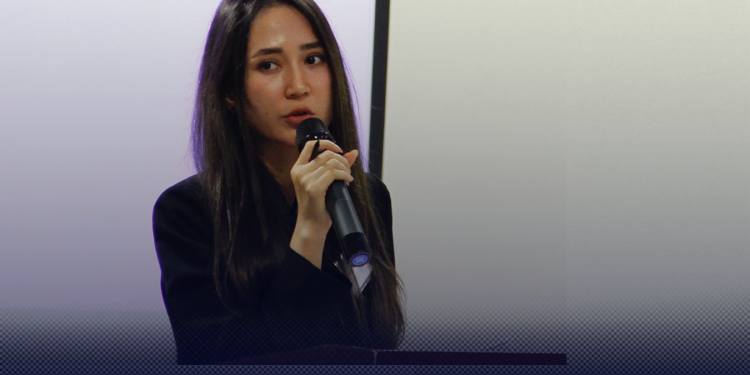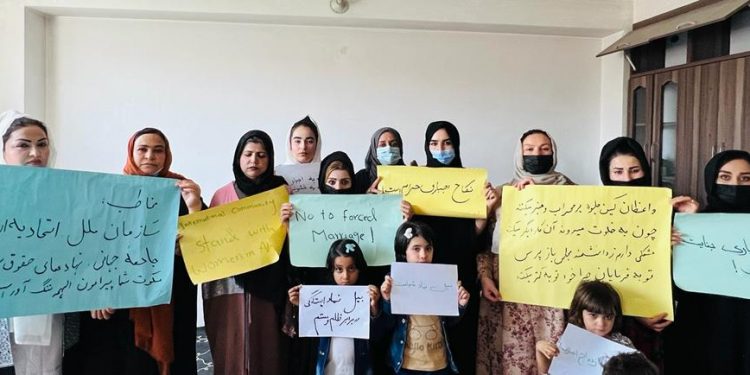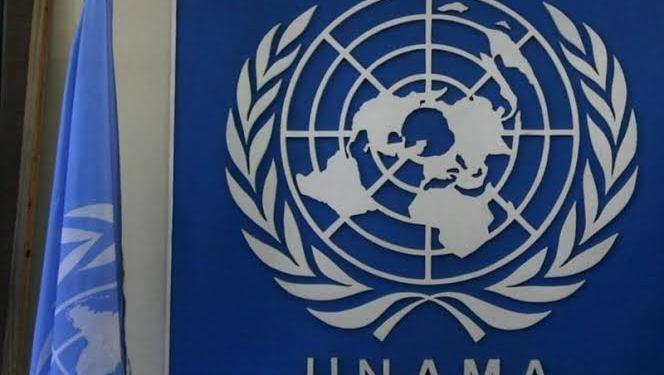This interview series is funded by the International Development Research Centre (IDRC) through a project entitled ‘Placement, Preservation and Perseverance: Afghan at-risk Scholars, Students and Activists’ (PPP) based in the Department of Law and Legal Studies at Carleton University
Razia Barakzai, born in Farah Province, is an only child. She attended elementary school in Iran and completed high school in Afghanistan. After high school, she studied Persian literature for two semesters at a teacher training college in Farah Province. She then pursued a degree in law and political science at Herat University and later earned a master’s degree in administration and business from Dunya Private University in Kabul.
Like many of her peers, Razia Barakzai has faced numerous challenges in Afghan society. She has been a dedicated women’s rights activist during the Republic period, consistently fighting against social adversities, discrimination, misogyny, and gender apartheid.
Interviewed by: Aman Mirzaei
Nimrokh: What challenges did you and the other women face when creating the Spontaneous Movement of Fighting Women, and what was the purpose behind its formation?
Razia Barakzai: The main challenges for our generation escalated dramatically when Afghanistan fell again into the hands of the Taliban. This event is etched as one of the most bitter memories for all of us. Everything we had heard from our mothers and others who experienced the first Taliban regime—about the fears and regrets that lingered in their hearts—was passed down to our generation, transforming into unparalleled courage. We shouted this courage in the streets of Kabul, protesting against the Taliban’s injustice, oppression, and gender apartheid. With empty hands, we stood against a heavily armed terrorist group whose primary tactics were suicide bombings and explosions.
Our protests and efforts had a significant impact. We remain committed to continuing these efforts, aiming to achieve significant milestones not only for women but also for the contemporary history of Afghanistan. One of our greatest accomplishments was overcoming the pervasive fear in our community. This fear, which had enveloped Afghan society since the Taliban’s return, had deeply affected everyone, leaving people constantly worried. It was the bravery and outcries of women that shattered this fear, leading to the formation of numerous small and large organizations opposing the Taliban. Our efforts continued, and we thwarted the major conspiracies of political forces manipulating Afghanistan for their own interests, with internal collaborators playing a role as well.
Nearly three years have passed since Afghanistan fell to the Taliban, a takeover that seemed more like a conspiracy and power transfer than a military defeat. Despite the support the Taliban received from some countries in the form of training, financial aid, and military resources, we managed to prevent any nation from officially recognizing their regime. Another significant achievement of our protests has been bringing international attention to Afghan women’s plight. We secured the front line in global discussions, meetings, and opportunities for Afghan women, showcasing the true face of the Taliban to the world, despite the reversed efforts of their domestic and foreign lobbyists.
Nimrokh: What has been your personal experience with political and social participation during the twenty years of the Republic regime?
Razia Barakzai: During the twenty years of the Republic regime, I dedicated myself to my education. I studied law and political science at Herat State University, followed by a master’s course and various capacity-building programs. I worked as a professor at private universities and served in the Election Commission of Herat Province. Alongside my academic and professional work, I was deeply involved in social and cultural activities. I promoted public speaking techniques with prominent teachers in Herat and was a member of numerous literary societies.
I co-founded the National Fighting Youth Organization in Herat Province, focusing on cultural, research, and relief efforts. We organized public speaking classes, planted trees, and cleaned public spaces annually to improve the environment. We also held the Kindness Festival, distributing clothes and stationery to needy children multiple times. In 2017, I was appointed as responsible for Complaints in the Administrative Office of the President, a position I held until the fall of the Islamic Republic of Afghanistan. During this time, I remained active in civil organizations and earned a master’s degree in Business Administration.
Nimrokh: The Republic era presented a spectrum of opportunities and challenges for women. Could you share your perspective on the difficulties, issues, and opportunities faced by women during this time?
Razia Barakzai: The twenty-year period of the Republic regime presented both challenges and opportunities for women and girls. We were able to pursue education and muster the courage to participate in social and political spheres, often supported by familial encouragement and prevailing spirits within households. However, without the educational infrastructure, opportunities for advancement, and capacity-building initiatives for women, it was unlikely we would have seen women and girls taking to the streets in protest as they did.
From a legal standpoint, I believe not enough was done for women during this time, in terms of the government’s implementation of laws meant to protect and empower them. It would be more accurate to say that women faced numerous restrictions. There were significant disparities between urban and rural societies, which I personally experienced having moved from a village myself. Any girl aspiring to engage in social and political activities or enhance her skills encountered significant social and customary challenges embedded within Afghanistan’s government system. Women were required to exert more effort than men and contended with numerous societal hurdles. Additionally, the Afghan administrative system posed many obstacles, denying women their rightful entitlements, including the 30% quota for women in government offices.
The dual perspectives on men and women in Afghan laws created further challenges. While there were opportunities to challenge patriarchal views, they were insufficient. Afghan women maintained their status in society and politics by persevering against the rigid customs and existing rules. Every woman’s achievements in Afghanistan were the result of her own effort, hard work, and self-confidence. Economically, Afghan women did not attain the independence they deserved. While many women had access to commercial, economic, and employment opportunities—and many made the most of these opportunities—these opportunities were not distributed equally. Women faced numerous obstacles in accessing and controlling these resources.
Women faced endless problems in the educational sector. Our talented girls in the villages lacked opportunities to be recognized and utilize their talents. Many villages had no schools, no cars or public transportation, and no facilities for girls to travel from the village to the district or city to access education beyond their immediate surroundings.
We can set aside the social problems for now, which are considerable and extensive. Socially, we faced and experienced numerous issues, but we managed to solve many of them in both villages and cities. Under the Republic regime, women broke many taboos. We saw families sending their daughters abroad for education, a result of the efforts and struggles of women and girls throughout Afghanistan. Women in the cities worked as hard as they could within their environments, while girls in the villages and districts did the same within theirs.
Despite these conditions, brave girls emerged, challenging those who sought to restrict women and keep them confined to their homes. Today, every household has a fighting woman, an understanding and logical girl ready to confront these issues. In the current situation, there is a strong, determined female presence in every home, standing up against misogyny and societal restrictions in Afghanistan.
Nimrokh: What did Razia Barakzai experience on the day Kabul fell to the Taliban? Did you foresee this happening? What was the condition of the people on that day?
Razia Barakzai: On the day Kabul fell, I was in the Administrative Office of the President. At 11:45 AM, we were suddenly instructed to leave the Arg, without any clear explanation. The past few days had been filled with confusion and abnormality across the Administrative Office and throughout Afghanistan. Provinces were falling one after another, and we were desperately trying to understand what was happening, but we received no satisfactory answers.
On August 15, all employees were told to leave the office immediately and go home. As we left, we noticed that unlike previous days, Kabul was overwhelmed with Pedestrian traffic. It took me three and a half hours to go from the office to home. The streets were filled with people in a rush, distressed, trying to get home or to a safe place from their offices, workplaces, and shops.
When I got home and checked online, I noticed many women had deactivated their Facebook accounts and other social media. Some had changed their names, and most had deleted their photos from their profiles. All these events were a huge shock.
The decision to hand Afghanistan over to the Taliban hadn’t been officially made yet, but the fear and bitter memories of the Taliban’s previous rule prompted women to withdraw from cyberspace. The Taliban’s brutal actions over the past two decades, including suicide bombings and atrocities against innocent civilians, instilled deep fear in the hearts of the Afghan people. Everyone, including myself, was afraid, but we knew we had to take a stand. Our initial step was to create a hashtag with the message “we exist.” However, due to the decline in women’s presence on social media and many becoming inactive, it didn’t gain as much traction as we hoped.
On August 16, we attempted to rally support from our friends to promote the hashtag, but it didn’t yield the results we anticipated. That night, we decided to initiate street protests the following day. I reached out to political women, female activists, prominent figures, and celebrities, urging them to join us. Unfortunately, only four friends agreed to participate, while the rest declined. Not only did they reject the request, but they also advised us to remain silent, arguing that protesting would be futile and could endanger our lives.
The advice from many was to remain silent and focus on personal safety. However, we were resolute in our decision. Even if only five of us, we believed it was crucial to protest and defy the atmosphere of social fear. The more our requests to join us were rejected by others, the more determined we became to proceed with our protest.
On the morning of August 17, the five of us prepared handwritten placards and braced ourselves. We didn’t expect to return home alive, and we indirectly said our goodbyes to our families. We anticipated only hostility from the Taliban, knowing their reputation for violence and repression. They were known for being quick to quell any protests against them with force.
However, if it weren’t for the support of the media, we might not have survived that first day. Although we hadn’t informed any media outlets beforehand, we were fortunate to encounter numerous domestic and international reporters who covered our protest. Their cameras became our shield against the Taliban’s threats. This media coverage was our lifeline that allowed us to return home safely.
When we arrived at Zanbaq intersection and stepped out of the car, the Taliban immediately confronted us with guns and demanded that we stay quiet, leave the area, and go home. Despite their intimidation, we persisted in our protest, overcoming our fear and raising our slogans louder than ever.
One pleasant recollection from that day was when we passed through Zanbaq Intersection on our way to Shahr-e-Naw and encountered a few girls who were passing by. When they saw us, they declared, “We can’t leave you alone. We must fulfill our responsibilities.” Those three or four girls spontaneously joined us in the middle of the road, walking alongside us and chanting slogans. This collective solidarity among women showcased the bravery of Afghan women.
Following that day, I received numerous messages on WhatsApp and social media. Many girls expressed their desire to join us and offer their support. This marked the beginning of a spontaneous movement of Afghan fighting women. Within a day, we gathered 300 people from all corners of Afghanistan, united in standing up and resisting the Taliban, whether with words or actions.
Subsequently, protests emerged in Kabul and other provinces of Afghanistan. More women joined these demonstrations, and we held press conferences during these protests. To this day, Afghan women continue to protest in various ways, determined to voice their opposition and fight for their rights against the Taliban.
Nimrokh: Could you elaborate on why and how you departed from Afghanistan?
Razia Barakzai: After the protests, like many other protesting women who encountered security challenges, I too faced numerous difficulties. Most of us couldn’t stay in our own homes, so we had to reside elsewhere for our safety. At one point, I even had to leave Kabul temporarily. Eventually, realizing there was no safe environment for activism, I departed Afghanistan discreetly.
Nimrokh: Women have been the sole opposition and resistance forces against the Taliban across various provinces in Afghanistan and their resistance has significantly hindered the Taliban’s recognition by the international community. How would you evaluate these civil struggles over the past three years?
Razia Barakzai: I believe that the civil struggles of women over the past three years have been the most courageous civil and political actions witnessed in contemporary Afghanistan. I am proud that Afghan women have claimed this victory. Not only was their struggle unprecedented in Afghan history, but it also served as a model for women’s movements in the region and worldwide. We saw the courage of Afghan women inspire Iranian women to stand more resolutely against the Islamic Republic and other restrictive forces in Iran. Feminist groups globally, inspired by Afghan women’s bravery, initiated new forms of struggle.
The impact of women’s struggle against the Taliban is clearly evident. Our fighting women have been a significant barrier preventing the Taliban from gaining official recognition and political positions in international organizations. The real face of the Taliban was exposed to the world by these protesting women. The Taliban were compelled to react to these social stances, revealing the ugliness beneath their whitewashed facade. Beyond challenging the Taliban, our girls have confronted the world and political superpowers, showcasing the strength and resilience of Afghan women on a global stage.
The Taliban feared women’s writing, understanding, speech, and thoughts. This fear of women exposed their disgrace worldwide, and courageous women continue to stand firm. Consequently, I see the winning card in the hands of Afghan women, who are striving to achieve social justice and freedom for the Afghan people.
Nimrokh: One measure of a country’s development is the rate of women’s political participation. Under the Republic regime, women actively engaged in society and politics. What do you see as the strengths and weaknesses of women’s political participation in the republican system?
Razia Barakzai: It was the most golden opportunity. We had many women in high political positions, and some are still fighting to improve the status of women. However, this is not enough, and we expect this movement to become more widespread. In Afghanistan’s traditionalist society, women and girls face inherent political, social, and economic problems and obstacles from birth. The higher they aim, the more challenges they encounter, and the barriers become even thicker.
While a significant number of women achieved high academic degrees in a short period, it was definitely not enough.
We hoped that those limited opportunities would be utilized to see more growth and flourishing of the young generation in the coming years. This generation, equipped with knowledge, books, and social understanding, would enter the political, social, and economic fields. Unfortunately, the major players in the political scenarios took these opportunities away, leaving a generation with unfulfilled dreams. We hope this dark chapter in Afghanistan’s history will soon turn, allowing the people to live and achieve their dreams in their homeland.
Nimrokh: What kind of political system do you envision for Afghanistan in the post-Taliban era, and what kind of political system can meet the needs and demands of women in the future?
Razia Barakzai: Throughout its history, Afghanistan has experienced various political systems, most of which have failed and often lacked a foundation of social justice, particularly for women. The system I envision for Afghanistan is one rooted in the will of the people, the rule of law, and social justice. It should faithfully serve the values and aspirations of the people for a progressive society. This system must be committed to prioritizing the needs of the people. We will achieve this when power is genuinely handed over to the people and the country’s system is built according to their will, with the criteria and elements I mentioned. Whatever name this system carries, it can be reasonable and acceptable.






